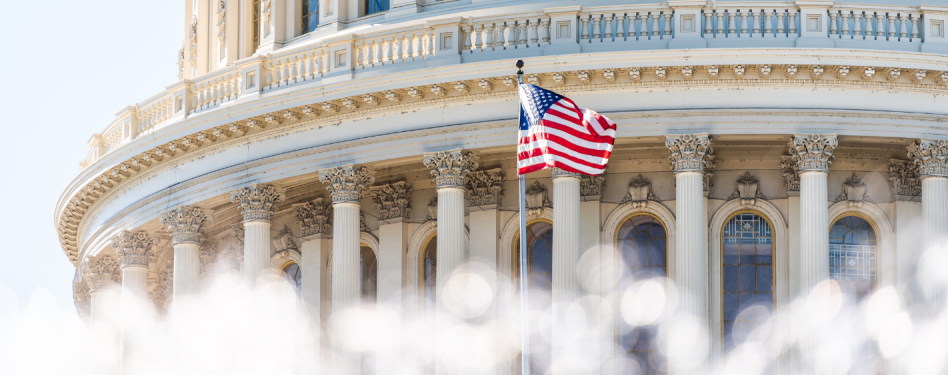
TRUE advocacy and legislation tracking: How and why upcoming legislation matters in zero waste.
Sustainable initiatives have skyrocketed in the past five years or so through local and state legislation, corporate sustainable policy frameworks, and increased education and awareness of both environmental issues and potential solutions. These interrelated processes build on each other to strengthen circular economy standards at state, federal, and global levels.
While we still have work to do to reach a universal circular economy, some incredible legislative initiatives have been passed recently that are tackling key waste issues, such as the international Break Free from Plastic campaign and U.S. federal legislation pushing for the same.
Statewide Legislation in the United States
The state of California’s 2021 legislative cycle saw great advancements in environmental legislation with the passing of several circular economy bills, which were supported by Californians Against Waste, National Stewardship Action Council, Surfrider Foundation, and the California Compost Coalition. Some of the bills directly support TRUE credits:
- AB 962 – Promotes Reuse and supports a circular economy by allowing glass beverage bottles to be cleaned and reused as opposed to being broken down and used at a lower value later in the economy. Glass is a highly sustainable materials, as it can be reused essentially forever. Unfortunately, the U.S. waste stream often handles it as a single-use material.
- AB 1201 – Enacts more stringent regulations on compostable containers because many include toxic chemicals that leach into the environment. This also supports composting credits in the TRUE Certification.
- AB 1276 – Extends straw-upon-request law to all single-use foodware accessories, following TRUE’s priority of Refusing single-use items and Reducing waste as opposed to finding ways to deal with the waste after it has already been created.
- AB 881 – Shuts down a loophole for states exporting portions of their mixed plastic waste to external landfill and incineration plants. States must now report contents of exported plastic waste; TRUE is excited to support this change as we focus so much on source separation and keeping track of your environmental impact (Zero Waste Audits).
States like Colorado, Virginia, Massachusetts and Washington are drafting and implementing much of their own sustainable legislation, ranging from bottle bills to plastic waste reduction. WasteDive's article on state waste and recycling bills passed in the 2021 legislative cycle demonstrates trends among the states in moving towards a circular economy.
- In addition to passing Plastics Ban HB 1162, Colorado has prioritized upstream sustainable purchasing, which aligns with TRUE’s Zero Waste Purchasing strategy.
- Virginia has passed HB 2173, a recycling bill to ban polystyrene food containers by July 2025, and Washington’s 2020 plastic bag ban is now in effect.
- Massachusetts also launched a Better Bottle Bill campaign this year amid conversations of ramping up recycling infrastructure.
National Legislation Across the Globe
Although many countries have recently adopted exciting sustainable action plans and federal policy, it is more difficult to get federal environmental legislation passed due to differentiated allocation of resources and services and funding available for federal infrastructure.
- In the United States, the Recycling is Infrastructure Too package has been proposed, but we have yet to see how the cards will fall as it moves through the legislative process.
- South Korea has been steadily building up its national legislation (Wastes Control Act, 5.7 Legal and regulatory framework) to encompass more single-use plastic items, with the most recent developments deterring luxury hotels from providing single-use plastic toiletries.
- South Australia moved to revamp their container deposit scheme this year based on their estimates that the movement could create “more than $70 million in economic benefit and 120 new jobs.”
- Europe has also taken a lead role in upgrading outdated practices with France’s recent ban on plastic produce packaging in grocery stores. The initial 2020 anti-waste law is ambitious, with gradual refinements through 2026. France and other European Union countries are setting an example for sustainable prioritizations.
International Legislation and Agreements
It can be difficult to evaluate our global sustainability commitments, as there is no international court for cases to be heard and legislation enacted. Instead, countries sign onto international agreements — several international environmental agreements have been signed in the last half a century. While many focus on pertinent environmental issues like ozone protection, climate change, and greenhouse gas emissions, direct ‘waste’ and resource management has been largely overlooked, but is quickly becoming a hot-button issue. TRUE promotes the reduction of waste at the source and diversion of waste from landfills and incineration, which means that TRUE certified facilities will be surpassing environmental standards and regulations for decades to come.
Stay ahead of state, federal, and global environmental regulations by getting your facility TRUE certified, looking at your facilities’ operations to see how you can join the movement, or becoming a TRUE Advisor and advocate of zero-waste systems and the emerging circular economy (or all three)!